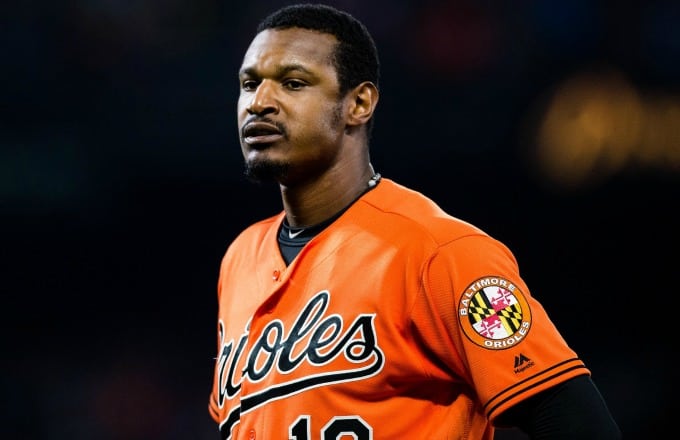
The apologies, as sincere and well-meaning as they were, are not enough.
Not anymore. Not when it’s 2017 and Adam Jones is subjected to appalling abuse for no other reason than the color of his skin. When the St. Louis Blues have to call out a supposed fan for expressing similar hate. When Denver Broncos linebacker Brandon Marshall gets letters threatening him with physical harm.
Need I go on?
If the Boston Red Sox and Major League Baseball are as upset as they say about the slurs and peanuts hurled at Jones by fans at Fenway on Monday night, then do something about it. Something substantive. Announce that they will take the lead on community forums to address racism and educational programs that will help people recognize prejudice and discrimination and eliminate it.
The time for simply being sorry that racism is alive and well in this country is long gone. It’s time to actually do something, and sports is the only platform with broad enough appeal to have a chance of accomplishing it.
“We always avoid the conversation,” said Dan Lebowitz, executive director of the Center for the Study of Sport in Society at Northeastern University. “The best way to move forward in anything is to move out of the denial stage. Move into an accountability stage and address the issue in a way that has meaning. We’ve avoided that conversation.
“Whether we’ve been bad at addressing it heretofore doesn’t mean we shouldn’t address it moving forward,” he added. “And athletics is an amazing institution to address it.”
Racism is an uncomfortable topic, I know. We’ve been dancing around it for more than 200 years as a country – 400 if you go back to the beginning – and simply bringing it up puts people on the defensive. Indeed, some of the reactions to what happened to Jones were telling, with many quick to say not all people in Boston are racist or wondering why there wasn’t audio or videotape of the fans who shouted the “n-word.”
As if either of those things are relevant. Or as if any white person has the right to tell people of color that racism doesn’t exist, having no clue what it’s like to live their lives or be confronted with prejudice on a regular basis.
Racism has been called this country’s original sin, and it continues to stain every part of our society. Our economy, our schools, our criminal justice system.
And, yes, even our sports.
Last year, there were 31 reported incidents of racism at the collegiate and professional level, said Richard Lapchick, director of The Institute for Diversity and Ethics in Sport. That’s triple the number there were in 2015 – and those are just the ones that are reported, mind you.
Jones said Tuesday he doesn’t have “enough hands and toes” to count how many times he’s been subjected to similar behavior at Fenway. But it’s not just Fenway. LaTroy Hawkins used to have MLB security open his mail when he was with the Chicago Cubs. Some St. Louis Cardinals fans made racist statements about Jason Heyward on social media after he left the team.
It’s not only baseball, either. Philadelphia Flyers winger Wayne Simmonds had a banana thrown at him when he was on the ice. Marshall and Antonio Cromartie were among the players to experience racist taunts after joining Colin Kaepernick’s national anthem protests last year.
“This is the climate we’re in,” Lapchick said. “At the same time – I’ve spent 50 years trying to get athletes to become activists on social issues, without much success. In the last 12 months, there’s been much more athlete activism than I’ve seen in my lifetime.”
The anthem protests, obviously. LeBron James speaking out about police violence and the fear he has for his own sons. WNBA players wearing “Black Lives Matter” T-shirts. Red Sox outfielder Mookie Betts took to Twitter on Tuesday to urge fans to “stand up for (Jones) tonight and say no to racism.”
But the players shouldn’t have to take this on alone.
Sports has long been the prism through which we view society, the one place we know we can find common ground. The Red Sox and MLB – the NFL, NHL, NBA and MLS, too, while we’re at it – need to use that and become leaders in bridging the racial divide.
It’s easy to issue apologies. Far better to make sure they never have to be given again.
By Nancy Armour
This article was republished with permission from the original author and 2015 Ronald Reagan Media Award recipient, Nancy Armour, and the original publisher, USA Today. Follow columnist Nancy Armour on Twitter @nrarmour.